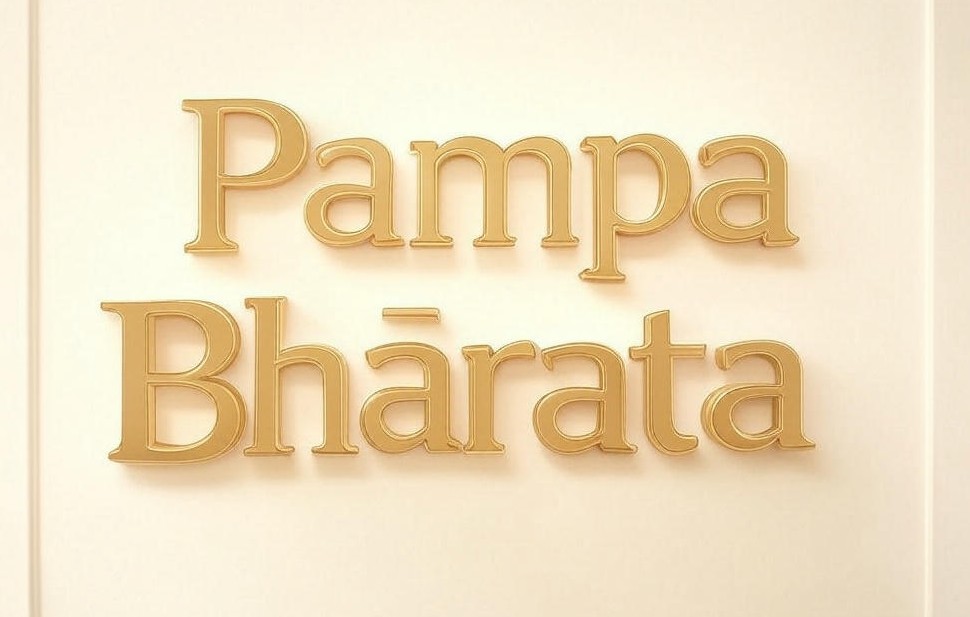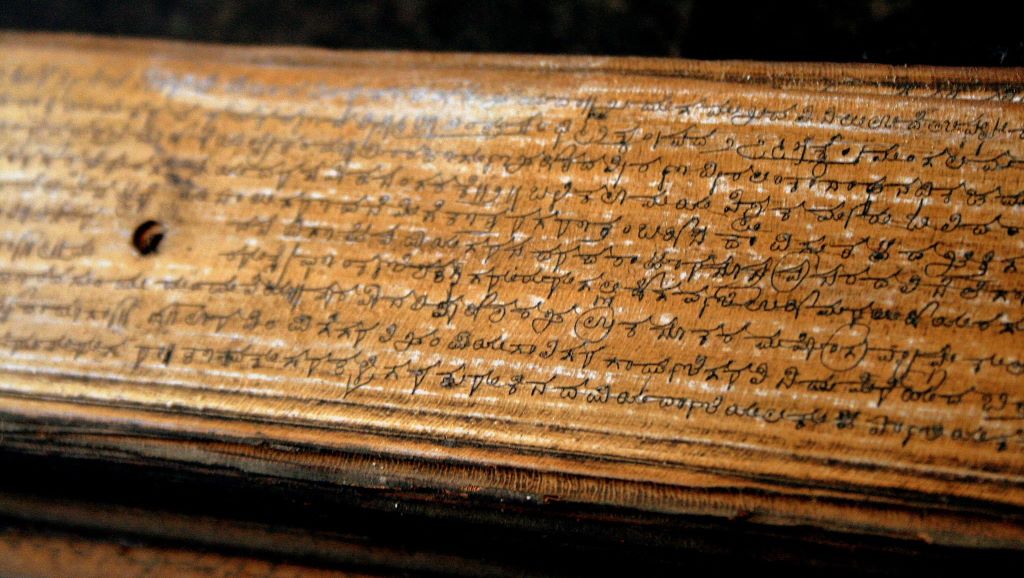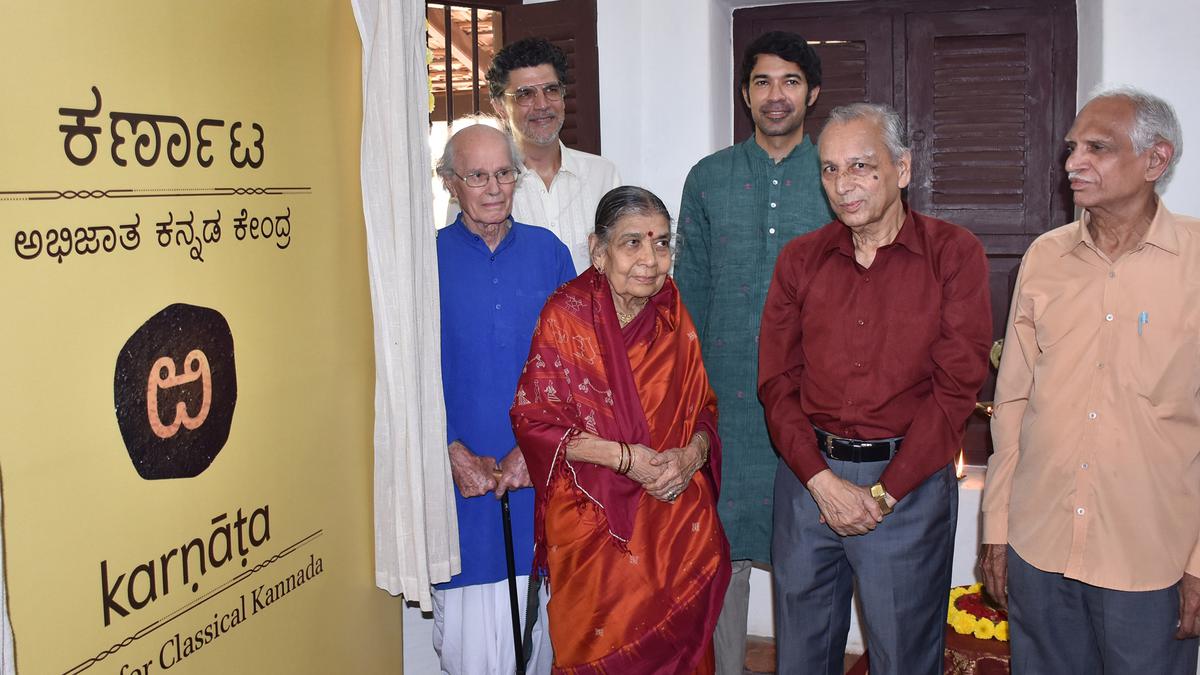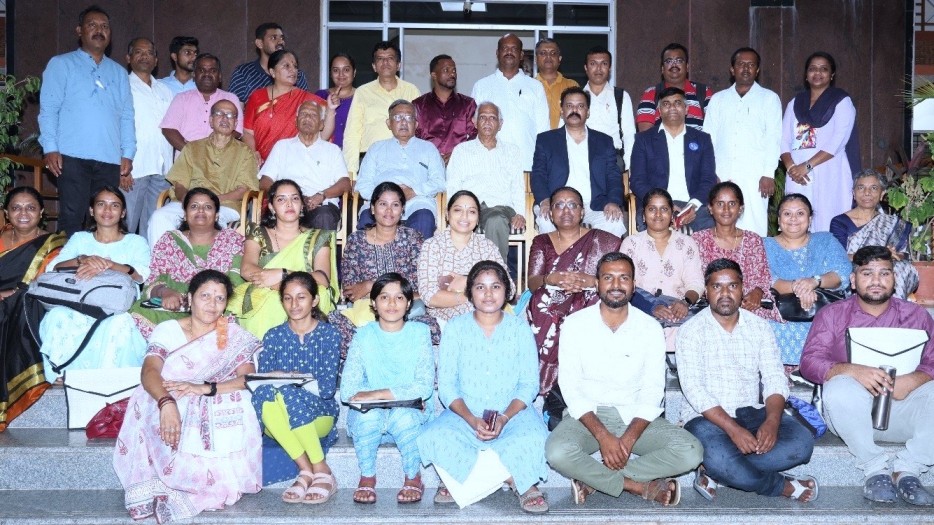The Centre for Classical Kannada, karṇāṭa, in collaboration with the Kannada Development Authority and Karnataka State Open University, successfully conducted an international workshop for Classical Kannada studies. Forty participants attended the work-shop, immensely benefiting by the lectures presented by scholars.
The workshop was inaugurated by the esteemed scholar Dr. T.V. Venkatachala Shastri. In his address, he emphasized the necessity of using flawless Kannada and the importance of taking Kannada studies seriously. He encouraged a diligent practice of the Kannada literary heritage, which has a long-standing history.
On the first day, three lectures were held. The first lecture was delivered by Dr. N.S. Taranath, focusing on the reading, understanding, and interpretation of Old Kannada literature. He discussed many aspects to consider while studying Old Kannada literature with illustrative examples. The second lecture was presented by internationally renowned scholar Dr. H.V. Nagaraja Rao, who elaborated on the influence of Sanskrit on elite Kannada literature with numerous examples. He stressed that understanding Sanskrit terminology and grammatical structures is essential for studying ancient Kannada literature. The third lecture on the same day was by Dr. R.V..S. Sundaram, who illustrated how to easily practice prosody and the concept of poetic conventions.
On the second day, Dr. Tamil Selvi gave the first lecture, detailing the prerequisites for studying classical Kannada literature. She emphasized the need of collecting classical texts, the study of reference works, and the importance of critical and analytical preparation. Dr. T. Nagarathna delivered an insightful talk on the editing of texts, discussing potential revisions within the context of Haridasa literature. G.N. Narasimhamurthy from the Kannada Ganaka Parishat provided useful information on digitizing classical literature for online access, using examples from works like Pampa Bharata, Adi Purana, and Kumaravyasa Bharata. The final lecture of the day was by Dr. K. Kamalaksha, who explained how to teach Old Kannada texts, using the story of Yashodhara as a reference.
On the third day, the first lecture was by Dr. Gil Ben-Herut, who discussed the source material for classical Kannada literature and technical aspects through power point presentations. Dr. M.B. Manjunatha elaborated on reading inscriptions and their impact through power point presentation. Dr. Jyoti Shankar captivated the audience with her presentation on poetic recitation and gamaka art. Dr. Samana Gururaja from Germany discussed the project on Kannada inscriptions via online multimedia.
The valedictory address was delivered by Dr. D.K. Rajendra. Distinguished guests, including Dr. O.L. Nagabhushana Swami and Dr. Santosh Hanagal, Secretary, Kannada Development Authority, shared their insights. Dr. M. Ramnatham Nayudu presided over the event.






